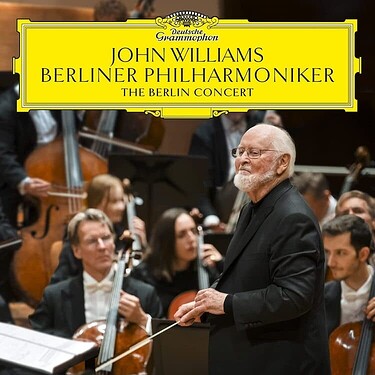I’m a big baroque fan just not a classical listener so far.
I enjoy the most: Vivaldi, Bach, Telemann, Handel, Pachelbel, Buxtehude, Torelli, Corelli, Leonardo Leo…
I was listening to this recording a bunch of times (on Apple Music if it makes a difference), but I found the Cello Concerto to be of a rather poor quality, I could hear the compression whenever the music would get very loud ![]()
I have to say, I’ve never heard that cello concerto before, and it is just beautiful. I am on the look out for other versions of that work.
I kinda thought so as well, but I got so swept away by her playing that it didn’t really matter. From what I understand, this was one of her later performances (late 1970) and it has been said it was possibly her best with respect to the Elgar concerto. She was also playing the Peresson Cello, the last one she would use.
I want to get deeper into her body of work, which is pretty large, given her relatively short career. Lots to choose from out there.
Let me know what you think after diving into her work ![]()
Will do. Should be fun…
Enjoyed this selection this morning. On the bedroom boomer, of course!
Using the V40 as the source, I am getting these alternative formats. This album was done in Dolby Atmos, and it was wonderful.
AMUHD > LG V40 > SMSL M200 > Realistic EQ > Denon AVR-2800 > Senn HD 660s
@Raptor168 Cool. I’ve listened to this a lot as well. I prefer it to the concert with Vienna
which is quite a bit brighter. Thought about getting a v40 at the time, but didn’t. Wish I had, lol.
I’m tellin ya, this phone has been a real treat how it does audio. The BT connection is spectacular, as it goes right into LDAC and streams Hi res. When it’s time to get a new phone, I may just keep this thing as a streamer.
But yeah, the album was really good. Exceeded expectations.
@Raptor168 Good idea…keep it. I seldom do music on the go, but sometimes hook up my old, and still in use, LG5. Amazingly the usb out was/is 24/192. Wish they hadn’t dropped out of the phone business!!
Once you go Bach, you can’t go back! ![]()
Here’s a wonderful introduction to the Viola da Gamba. Seems to be a really difficult instrument to play well.
What an intriguing instrument. I did not know that such a thing even existed. Now I am anxious to hear one in action! I shall check out the piece above at my first opportunity. Thanks for sharing.
Check out Telemann’s New Paris Quartets. Make sure they are performed with a Gamba and not a cello. Beautiful music and the Gamba is a great sounding instrument.
Yes, I see what you mean. Lots of those pieces are actually played by Cellos. I was able to sample some great work using Gambas. Really interesting and beautiful to my ear.
I got treated to a really nice piece of music this morning while on the way into work.
![]()
I have not heard of this composer before but after listening to this piece I am curious to know a bit more about him. Another nice little discovery!
How did you discover it? Is this a screenshot from a radio station?
Yes, Station KDFC San Francisco. The screen shot is from the play list on their site. I love this station! I’m on the road an hour plus one way and it makes the grind a lot easier to do. The rides in can be truly great if you can get a great piece just as the Sun is coming out.
The below is from Wiki. I don’t know if the scholarship holds up, but Rifkin’s scoring of Bach’s Cantatas are life changing…
Bach’s vocal scoring[edit]
Rifkin is best known to classical musicians for his thesis that much of Johann Sebastian Bach’s vocal music, including the St Matthew Passion, was performed with only one singer per voice part, an idea generally rejected by his peers when he first proposed it in 1981. In the twenty-first century the idea has become influential, despite still not achieving consensus in the field. The conductor Andrew Parrott wrote a book arguing for the position (The Essential Bach Choir; Boydell Press, 2000; as an appendix the book includes the original paper that Rifkin began to present to the American Musicological Society in 1981, a presentation he was unable to complete because of a strong audience reaction). Bach scholars as Daniel Melamed,[10] David Schulenberg[11] and John Butt[12] have argued in its favor.





